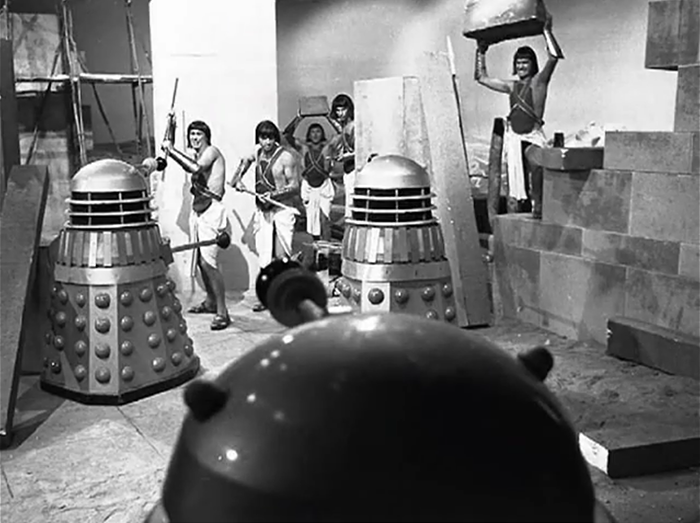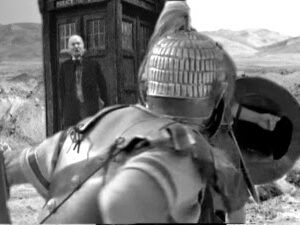
It is an unfolding truth that human beings as a species are just smart enough to create problems they are incapable of solving.
Smart enough to see the wide wonder of the expanding universe but not smart enough to ever truly comprehend it. Smart enough to innovate to survive but not smart enough to either see or mitigate the side effects of that innovation.
Off all the potential threats we may face as we step forward from our territories – whether that’s a region, a continent or a planet – none is so great as the threat of our own incompetence.
It’s a theme that The Expanse, along with other, lessor, shows like The 100, have been dancing around for a while. But, with its latest season, the gritty hard-sci-fi show has finally played the hand it’s been building for the last five years. And unlike The 100 – which portrays humanity as an endless moving destructive force fighting over nothing – The Expanse is constantly tantalising us with the idea that maybe, just maybe, this time we’ll be able to overcome it all and create something bigger than ourselves.
For fans of The Expanse, the last five years have been somewhat of a roller coaster ride. Originally picked up by the endemically-confused SyFy channel, it was then predictably cancelled by a network that remains bipolar on its relationship to science fiction (despite it supposedly being a science fiction channel).
It was a rare piece of high-concept storytelling for a network whose original scripted works – like the recent Dark Matter – have become banal and generic; an attempt to both create science fiction and play it safe, something that is not actually possible.
Following the shock cancellation, The Expanse was picked up by Amazon Prime who, as well as renewing it for a fifth season before the fourth had even aired, did not compromise the show’s vision but instead gave it more scope to soar. Gone are the show’s pacing issues, obviously dictated by a network that decided its first season was ‘boring’. Gone are the episode time constraints, although none of them are too long or too short but are mostly in the Goldilocks zone. And gone are the language and violence constraints too, allowing characters like the Sari-clad badass Chrisjen Avasarala to let fly with her expletives and famous f-bombs.

Never has a cancellation been so beneficial; not just to fans of The Expanse but to science fiction fans everywhere eager to show that there is still a market for high-concept, high-quality, cerebral science fiction.
As Season 4 starts, I admit to some confusion. Not Dark-level confusion but confusion nonetheless. It’s been a full 18 months since we checked in with our crew of the Rocinante, as well as the richly-realised future solar system of Belters, Mars terraformers, a crumbling Earth, terrorists, refugees and a swirling storm of changing allegiances and shifting loyalties.
This season starts with all of our characters out of their comfort zones and attempting to navigate unfamiliar situations with a slow-building existential unease that puts increasing pressure, not just on their ability to cope, but on their own self-images.
With Bobbie stuck back on a Mars collapsing under the twin existential threats of peace and a multiverse of habitable planets that render its terraforming project redundant, Avasarala is attempting to operate in the glare of public judgement after decades of being a force behind the scenes. The Belters are forced to navigate for the first time politics; a muddy place far from the white-hot clarity of rebellion. Meanwhile, the crew of the Rocinante are sent to solve a problem on newly-settled world, Ilus: one that they can’t resolve by a fast ship and guerrilla tactics. For the first time, our crew of heroic wanderers are stuck in a situation from which they cannot escape.

It’s the sense of existential unease pervading this season that makes it more unsettling to watch than the previous three. Holden and Naomi are very much the current metaphorical peace: outwardly happy but facing the greatest threats from within themselves rather than from any external force. Everyone is off balance, uncertain; no longer sure of their actions or even who they are anymore.
It’s a feeling familiar to all of us as we move into 2020. As the world burns and we seem incapable of doing what needs to be done to stop it, we are faced with a reflection of ourselves in unfamiliar and unprecedented circumstances and not entirely pleased with our own image.
It may seem strange to bring up climate change in terms of a science fiction show set in the far future and yet it’s clear this crisis is very much on the minds of the writers as the show sets up this season’s dominos. Earth, we are reminded has been devastated by global warming; its population consisting of a privileged elite and a core population rendered useless and hopeless by circumstance. Some of these left for Mars in the hopes of becoming a new elite, others got stuck in the Belt as a permanent, downtrodden worker class.
In each case, that scenario played out in precisely the same way. Having destroyed what we have and being unable to come up with a solution, we moved enthusiastically onto something new. As season 4 opens, refugees are already lining up at the gates hoping to go through to the promise of a new life on a completely new planet. And yet, as we see from Ilus, the new world seems to be merely a new setting for us to repeat the same mistakes.
Humanity, as ever, just smart enough to create problems we are not smart enough to solve.
And yet The Expanse never gives in to fatalism or to glib catastrophising. The promise that humanity might learn its lessons and finally get it right is held out in front of our faces like an artificial lure even as chaotic and uncontrollable elements emerge from the aftermath of our previous successes and failures. Humans destroy but they also build, something that The 100 and shows like it keep forgetting.
Ilus may be all our worst human failures in a microcosm but it doesn’t mean we can’t get through them and finally get it right. Sometimes, just sometimes, we can learn from our mistakes. As long as the planetwide ecological disaster doesn’t get us first.
Having said all that, this season exposes our greatest, most fatal flaw and it’s not our tribalism and it’s not our territorialism. Humans have a deep and intrinsic need to feel like they are doing something, achieving something, are part of something bigger. It’s what drives us to come together to build something greater than ourselves – like Mars’ terraforming – but it’s also what causes us to break apart when peace beckons.

This animalistic, primate need to be seen to be doing something drives many of the characters across this season and is nowhere better exemplified than in former Martian Marine, Bobbi Draper, whose floundering is possibly even more difficult to watch than Holden’s or Amos’ or even Avasarala’s.

And yet, at the end of the season as she faces the reality of just how far from her internal ideal Mars has fallen, all Bobbie has to say is, “At least now I have something to do”.
And this, as much as anything, might be why we’re all doomed.
Amazon Prime dropped all 10 episodes of The Expanse on 13 December.




One thought on “The Expanse Season 4: Hope is a Sliver”